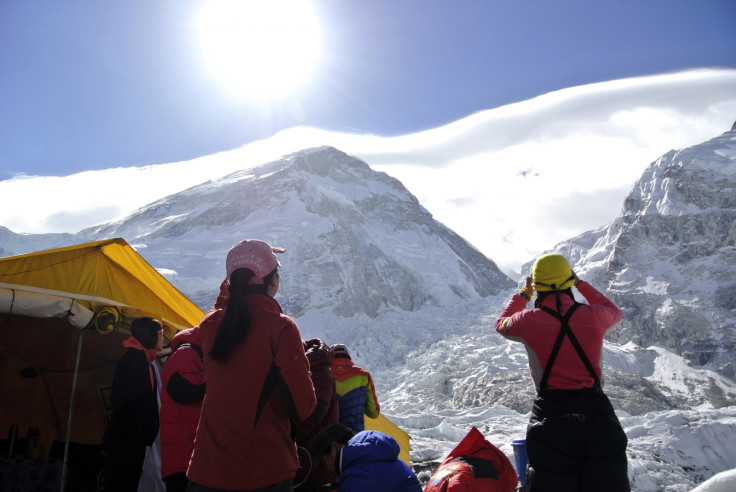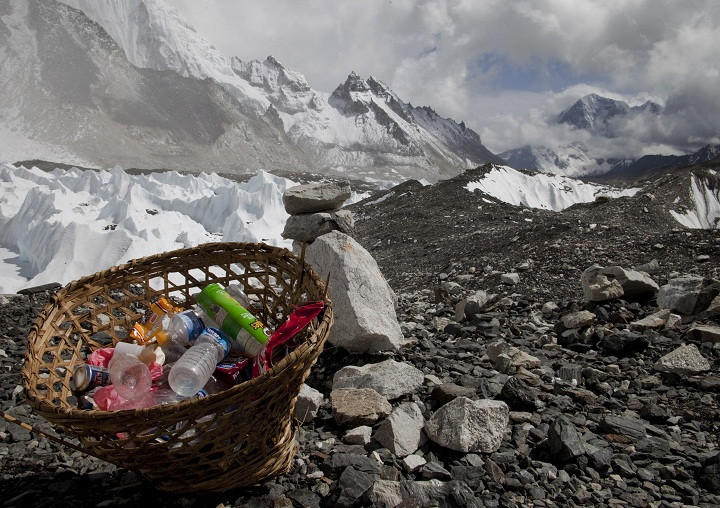Climbing Mount Everest? Nepal mulling age, experience and disability restrictions

Conquering Mount Everest, the world's highest peak, may soon require more than just money and a fair amount of climbing experience. The Nepal government is mulling regulations to protect too young, too old, disabled or inexperienced climbers from taking on the 8,848m high expedition.
Nepal's tourism minister Kripasur Sherpa told the Guardian, "We cannot let everyone go on Everest and die. If they are not physically and mentally fit it will be like a legal suicide."
The government is worried about the safety of the climbers as well as preservation of the ecosystem at the Mount Everest, Sherpa said and added that for the first time the Nepalese government would station an official team at the base camp.
If the regulations come into effect, permits to conquer the peak will only be given to those who between 18 and 75 years of age. That too, only if the climbers can prove they have scaled mountains higher than 6,500m. Additionally, disabled people will be forbidden from making the expedition, unless they can do so without any help. The new rules are expected to be implemented around the spring season, when hundreds of mountaineers from across the world descend upon Nepal to reach the summit.
Previously, only the most experienced mountaineers attempted to make the climb, but in recent years many inexperienced climbers using basic equipment such as ice axes and crampons undertake the expedition depending on local tour guides.
However, Kiwi mountaineer Mark Inglis, who conquered the peak but lost both his legs in the process said that he personally believed that it "should be the competence of a climber that matters - not the age or physical ability. Yet, there are psychological factors to overcome on such a dangerous mountain, he claimed, where setting an age limit would not help.
Environmental hazards
A permit to climb Mount Everest cost thousands of dollars and are a key source of revenue for Nepal. But as the number of climbers are increasing, the environment surrounding the world's most iconic mountain has deteriorated over the years. Tents, sleeping bags, oxygen cylinders and even corpses of climbers still remain strewn around.

In May 2015, an experienced group of climbers from the Indian army undertook the task of collecting garbage and managed to clear out 4000kg of waste from high-altitude camps. In March 2014 the Nepalese government issued new rules that would require individual climbers going beyond the base camp to bring along at least 8kgs of personal garbage and hand it over to officials stationed there.
Junko Tabei, the first woman to conquer Everest in 1975, also expressed concerns last week about the number of mountaineers on the peak and said, "Allowing a large number of climbers in a season poses high risks to the mountain's environment and the climbers as well."
The summit has seen a variety of climbers successfully scaling the peak including California's 13-year-old Joran Romero, who is the youngest to do so, and Japanese mountaineer Yuichiro Miura, who at 80 years of age, climbed the peak. An American blind athlete, Erik Weihenmayer also scaled the mountain, becoming the only blind person in the world to do so. Such conquerors may never be seen, once the new rules come into effect.
© Copyright IBTimes 2025. All rights reserved.





















